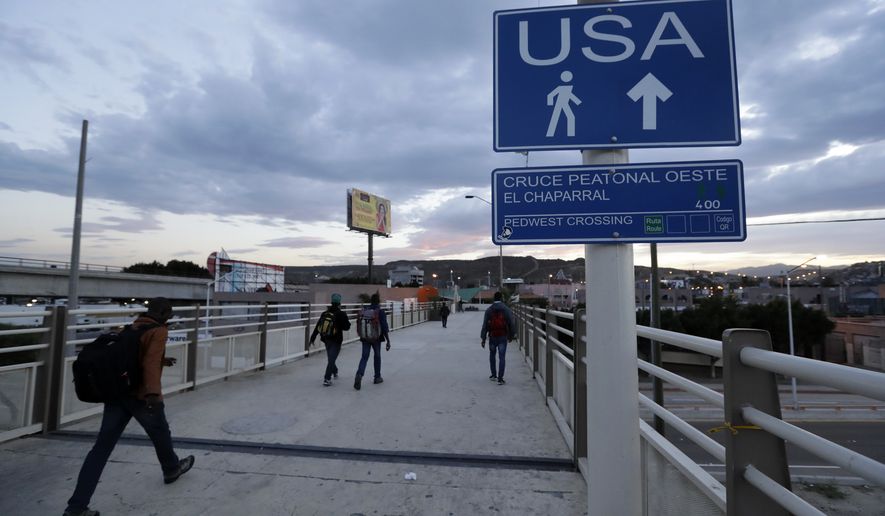One of Capitol Hill’s most adamant privacy proponents demanded answers from the head of the Department of Homeland Security this week amid recent reports of Americans and foreigners alike having their smartphones and social media accounts searched and seized at international border crossings.
Sen. Ron Wyden, Oregon Democrat, wrote to Homeland Security Secretary John Kelly on Monday after being made aware of recent instances in which U.S. Customs and Border Protection (CBP) agents allegedly pressured American citizens into surrendering access to their personal smartphones.
“These reports are deeply troubling, particularly in light of your recent comments suggesting that CBP might being demanding social media passwords from visitors to the United States,” Mr. Wyden wrote, alluding to testimony Mr. Kelly gave before Congress weeks earlier.
“I intend to introduce legislation shortly that will guarantee that the Fourth Amendment is respected at the border by requiring law enforcement agencies to obtain a warrant before searching devices, and prohibiting the practice of forcing travelers to reveal their online accounts passwords,” he added.
While Mr. Wyden did not cite any specific reports in his letter, at least two instances involving American citizens being stripped of the cellphones by Customs agents emerged as of late. Sidd Bikkannavar, a U.S.-born NASA engineer, said he was detained upon arriving in Houston last month and ordered to give CBP agents his phone and the PIN number that protects it.
Haisam Elsharkawi, a 34-year-old American citizen, similarly said last week he was ordered recently by authorities at Los Angeles International Airport to unlock his cellphone so Customs agents could browse its contents.
“There are well-established legal rules governing how law enforcement agencies may obtain data from social media companies and email providers,” Mr. Wyden wrote. By ignoring those, he added, “CBP would be short-circuiting the vital checks and balances that exist in our current system.”
Mr. Wyden’s letter asks the DHS chief to details several aspects concerning how it conducts border searches by March 20, including how often the agency compels travelers for access to their data and devices, and under what legal authority.
Testifying before Congress this month, Mr. Kelly suggested that foreign travelers should have to surrender access to their social media accounts in order to be considered entry.
“We want to get on their social media, with passwords: What do you do, what do you say?” he told lawmakers. “If they don’t want to cooperate, then you don’t come in.”
Though not currently mandated, a bill proposed in the House of Representatives last week would require DHS to review visa applicants’ publicly available internet activity, codifying precisely the same practice Mr. Wyden described as “alarming” in Monday’s letter to the agency’s director.
Mr Wyden has for years been at the forefront of addressing Fourth Amendment concerns in the digital age, and co-sponsored a bill in 2008 that aimed to prevent federal agents from conducting “suspicionless” searches of travelers’ devices.
• Andrew Blake can be reached at ablake@washingtontimes.com.




Please read our comment policy before commenting.